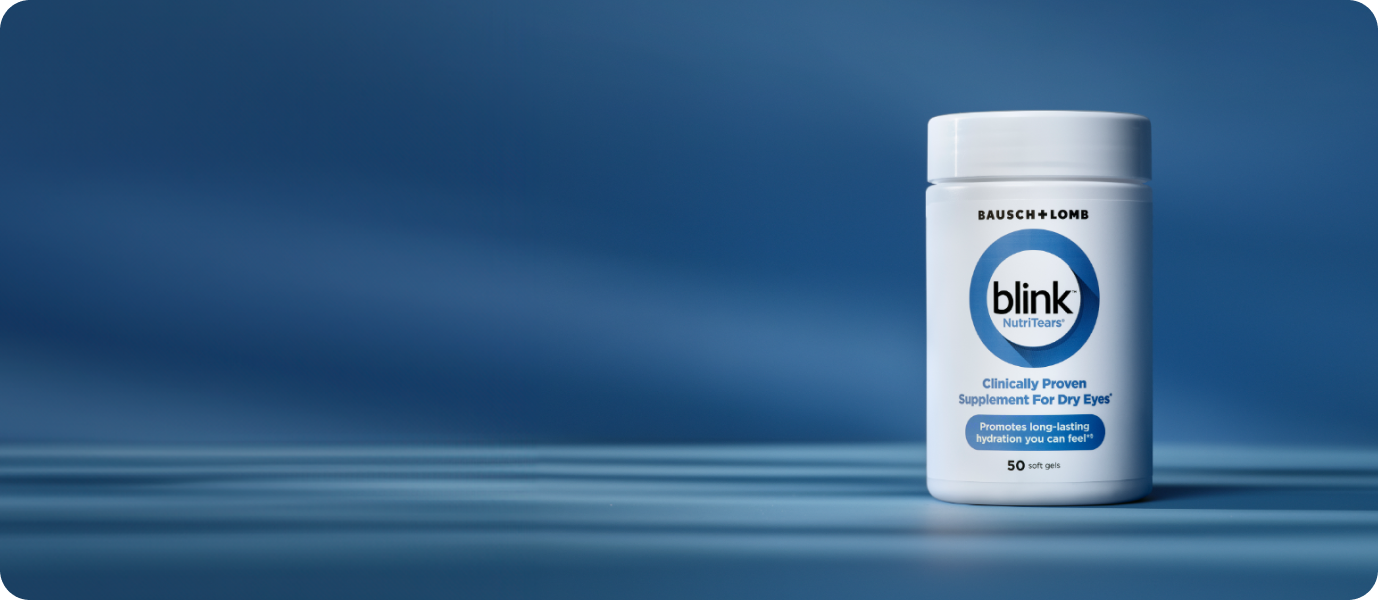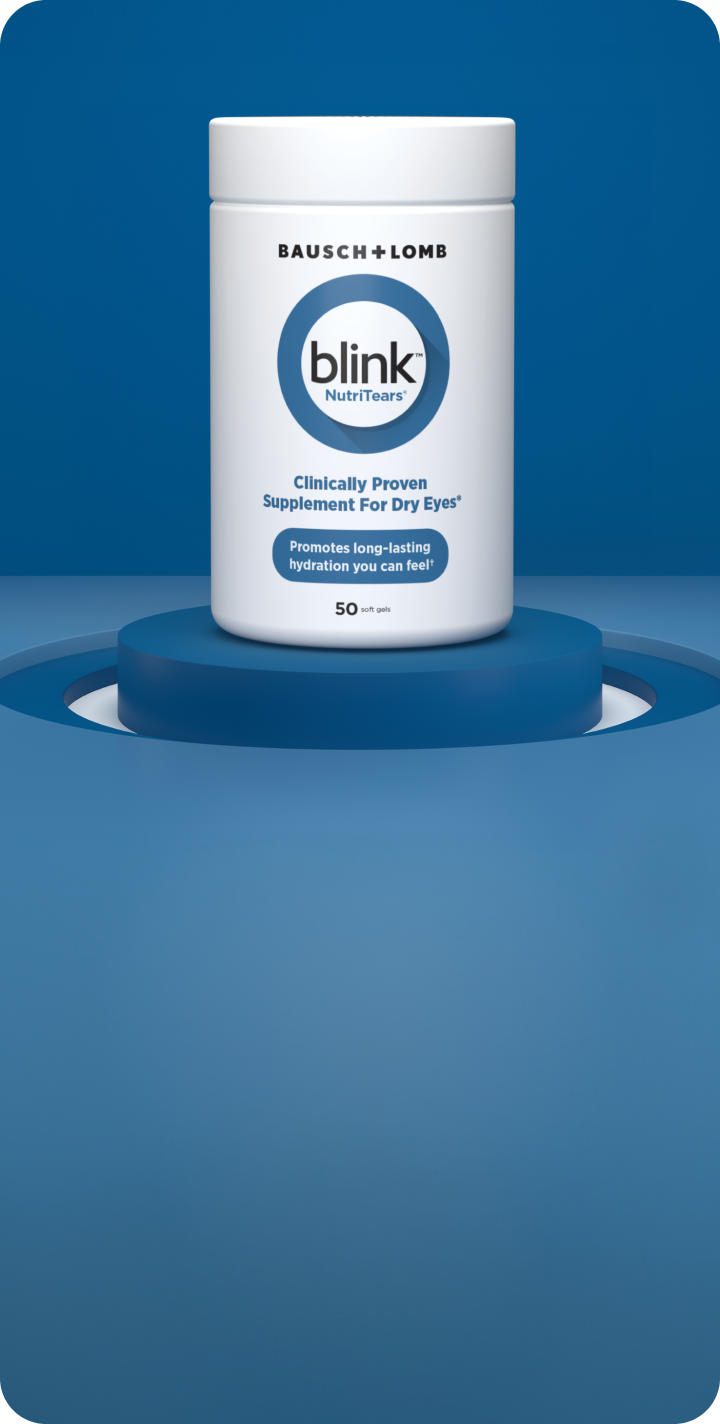Clinically Proven to Provide Noticeable, Continuous Symptom Relief in 2 to 4 Weeks*§
Blink™ NutriTears® hydrates eyes from within.*
Addresses dry eyes
from the inside out*§


Promotes healthy
tear production*§
Reduces patient discomfort
in 2 to 4 weeks*§
*These statements have not been evaluated by the Food and Drug Administration. This product is not intended to diagnose, treat, cure, or prevent any disease.
§Based on a clinical trial; N=116, randomized 1:1 NutriTears® and placebo.
A Once-a-Day Supplement That Does
Not Contain Omega-3
Blink™ NutriTears® is a unique blend of antioxidants and other bioactive
nutrients that support the tear film and the ocular surface.
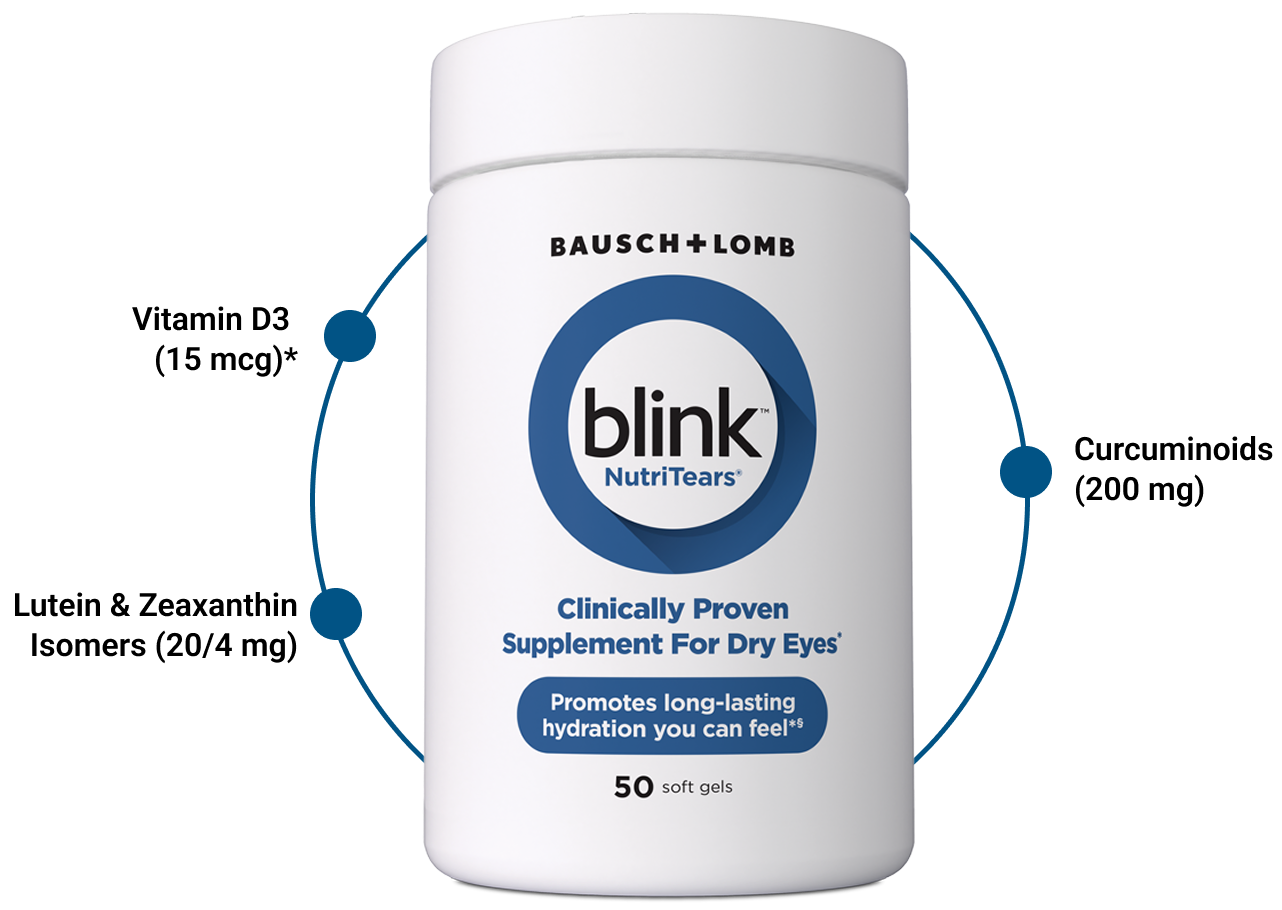
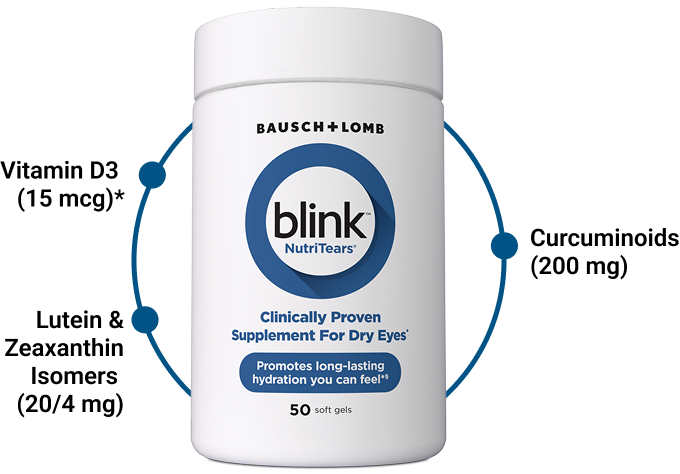
Lutein & Zeaxanthin
Have demonstrated antioxidant and anti-inflammatory effects, protecting against photo-oxidative damage1
Curcuminoids
In vitro, curcumin can reduce pro-inflammatory cytokines in corneal epithelial cells2,3
Vitamin D3
Shown to improve the efficacy of artificial tears and reduce symptom severity in both vitamin D3–deficient and non-deficient patients2,4-6
*600 IU.
Hear From
Your Peers
Recommend This Supplement
as a Complement to any
Dry Eye Management Plan
To order patient samples, call 1-855-54BL-OTC (1-855-542-5682).
Frequently Asked Questions
What you need to know about Blink™ NutriTears®.
BlinkTM NutriTears® is administered as one soft-gel taken orally each day with food.
Lutein, zeaxanthin, curcumin, and vitamin D3 have demonstrated protective and anti-inflammatory properties in ocular models. Clinical studies showed that BlinkTM NutriTears® improves symptoms of dry eye disease, reduces inflammatory markers and improves corneal and conjunctival staining.
Although omega-3 fatty acid supplementation has been widely studied, contrasting findings, short duration and low-quality data mean there is no definitive evidence of efficacy and a lack of consensus to guide optimal treatment. A recent, large, 12-month clinical study of omega-3 fatty acids did not show any benefit in patient symptoms or signs versus placebo. Further work needs to clearly establish a benefit for omega-3 in eye health.
Lutein and zeaxanthin are carotenoid pigments uniquely concentrated in the human macula. Following ingestion as a supplement, lutein has demonstrated antioxidant and anti-inflammatory effects, protecting the retina against photo-oxidative damage and inflammatory cytokine production caused by exposure to blue light.
Vitamin D3 is a prohormone, with antioxidant, immunomodulatory, and anti-inflammatory properties, which can affect the functions of corneal epithelial cells, including barrier provision and response to inflammation and infection.
In vitro, vitamin D3 exerts anti-inflammatory effects on the cornea by inhibiting stress-induced cellular inflammation or modifying signaling to reduce secretion of proinflammatory cytokines.
In patients with DED, low levels of vitamin D3 are associated with increased DED severity, poor tear film stability, and reduced tear volume.
In vitro, curcumin can reduce proinflammatory cytokines in corneal epithelial cells and act as a neuroprotector of retina precursor cells. When used as a supplement in patients with wet age-related macular degeneration (AMD), alongside anti-vascular endothelial growth factor injections, curcumin improved visual acuity and reduced the total number of injections patients needed.
There is no need to stop use of eye drops while using BlinkTM NutriTears®. Patients should discuss any changes to their treatment plan with their healthcare provider.
The BlinkTM NutriTears® clinical studies enrolled patients with all types of clinically diagnosed dry eye disease. Benefits were reported for all patient types.
Currently, tolerable upper intake levels have not been set for lutein or zeaxanthin and clinical data is not available for patients taking both BlinkTM NutriTears® and AREDS/AREDS2 formula dietary supplements. However, carotenoids such as lutein and zeaxanthin supplements are generally regarded as safe (GRAS) by the Food and Drug Administration (FDA).
Concomitant use of BlinkTM NutriTears® and Omega-3 supplements has not been studied; however, there is no overlap of ingredients and no known contraindications. Please consult your doctor for more information.
Blink® Triple Care
Can Work as a Complement to BlinkTM NutriTears®
Learn More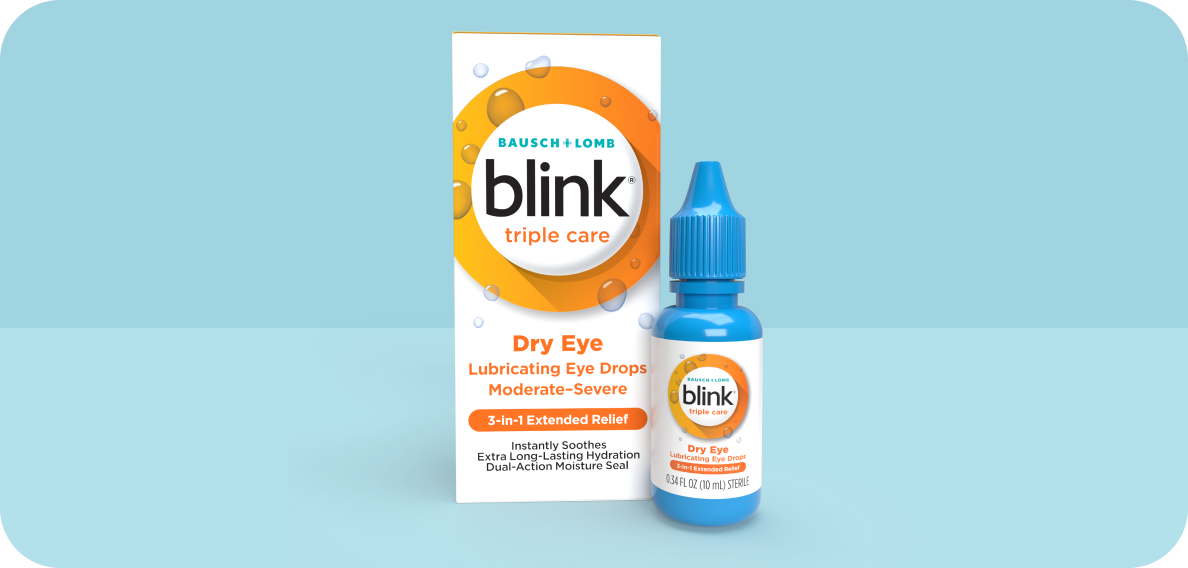
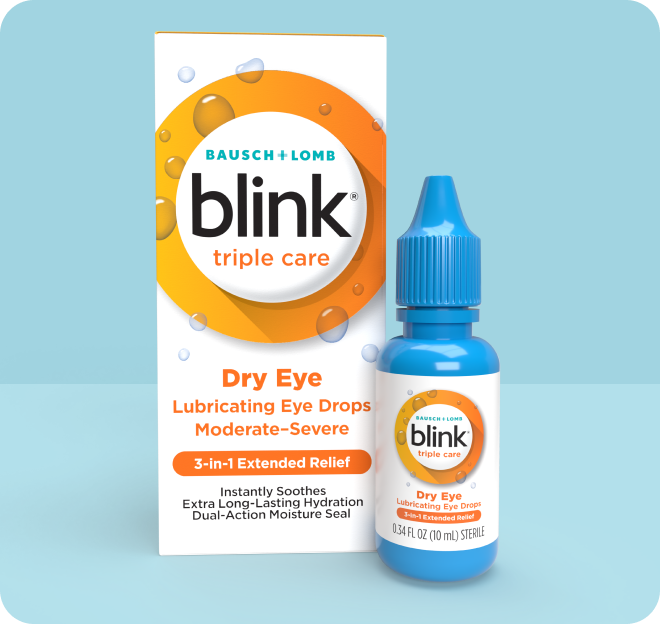
REFERENCES: 1. Cristaldi M, Anfuso CD, Spampinato G, Rusciano D, Lupo G. Comparative Efficiency of Lutein and Astaxanthin in the Protection of Human Corneal Epithelial Cells In Vitro from Blue-Violet Light Photo-Oxidative Damage. Applied Sciences. 2022;12(3):1268. 2. Castro-Castaneda CR, Altamirano-Lamarque F, Ortega-Macías AG, et al. Nutraceuticals: a promising therapeutic approach in ophthalmology. Nutrients. 2022;14(23):5014. 3. Davis BM, Pahlitzsch M, Guo L, et al. Topical curcumin nanocarriers are neuroprotective in eye disease. Sci Rep. 2018;8(1):11066. 4. Gorimanipalli B, Khamar P, Sethu S, Shetty R. Hormones and dry eye disease. Indian J Ophthalmol. 2023;71(4):1276-1284. 5. Hwang JS, Lee YP, Shin YJ. Vitamin D enhances the efficacy of topical artificial tears in patients with dry eye disease. Cornea. 2018;38(3):304-310. 6. Najjaran M, Zarei-Ghanavati S, Arjmand Askari E, Eslampoor A, Ziaei M. Effect of oral vitamin D supplementation on dry eye disease patients with vitamin D deficiency. Clin Exp Optom. 2022;106(3):257-262.

